Vaptan Tablet 10's
MRP ₹937.5
(Inclusive of all Taxes)
₹140.6 Cashback (15%)
Selected Pack Size:10
10 ₹843.8
(₹84.38 per unit)
In Stock
7 ₹630
(₹90.0 per unit)
Out of stock
Provide Delivery Location
Online payment accepted
 Prescription drug
Prescription drugWhats That
Composition :
Manufacturer/Marketer :
Consume Type :
Expires on or after :
Return Policy :
About Vaptan Tablet
Vaptan Tablet belongs to a group of medicines called vasopressin V2 receptor antagonist used to treat hyponatremia (low levels of sodium) in patients with heart failure, liver disease and hormonal imbalances such as Syndrome of Inappropriate Antidiuretic Hormone (SIADH). Additionally, Vaptan Tablet is also used to treat autosomal dominant polycystic kidney disease (ADPKD).
Vaptan Tablet contains ‘tolvaptan’ that works by blocking the effect of vasopressin, resulting in decreased water reabsorption, a net increase in free water excretion (aquaresis) and an increase in serum sodium concentrations. This decrease in free water is not associated with an increased excretion of sodium or potassium ions, the increase in serum sodium concentration is solely a result of increased urine production
You are advised to take Vaptan Tablet for as long as your doctor has prescribed it for you depending on your medical condition. In some cases, you may experience certain common side-effects such as dizziness, headache, dry mouth, fatigue, diarrhoea, thirst and increased urge to urinate. Most of these side-effects do not require medical attention and will resolve gradually over time. However, you are advised to talk to your doctor if you experience these side-effects persistently.
Do not take Vaptan Tablet if you are pregnant as it may cause foetal harm. Consult your doctor before taking Vaptan Tablet if you are breastfeeding. Vaptan Tablet is not recommended for children below 18 years as the efficacy and safety have not been established. Vaptan Tablet may cause dizziness, so drive with caution. Avoid consuming alcohol as it might cause increased dizziness. Inform your doctor about all the medicines you are taking and about your health condition to rule out any unpleasant side-effects.
Uses of Vaptan Tablet
Directions for Use
Key Benefits
Vaptan Tablet belongs to a group of medicines called vasopressin V2 receptor antagonist. Vaptan Tablet is used to treat hyponatremia (low levels of sodium) in patients with heart failure, liver disease and hormonal imbalances such as Syndrome of Inappropriate Antidiuretic Hormone (SIADH). Besides this, Vaptan Tablet is also used to treat autosomal dominant polycystic kidney disease (ADPKD). Vaptan Tablet works by blocking the effect of vasopressin, a hormone which is involved in the formation of cysts in ADPKD patients. By blocking the effect of vasopressin, Vaptan Tablet slows down the development of cysts in kidneys and reduces the symptoms of the disease. Vaptan Tablet antagonises the effect of vasopressin, this results in an increase in free water clearance and decreases urine osmolality due to increased urinary excretion, thereby increases serum sodium concentrations.
Storage
- Inform your doctor about dry mouth symptoms. They may adjust your medication regimen or prescribe additional medications to manage symptoms.
- Drink plenty of water throughout the day to help keep your mouth moist and alleviate dry mouth symptoms.
- Chew sugar-free gum or candies to increase saliva production and keep your mouth moisturized.
- Use saliva substitutes, such as mouthwashes or sprays, only if your doctor advises them to help moisturize your mouth and alleviate dry mouth symptoms.
- Avoid consuming smoking, alcohol, spicy or acidic foods, and other irritants that may aggravate dry mouth symptoms.
- Schedule regular dental check-ups to keep track of your oral health and handle any dry mouth issues as they arise.
- Inform your doctor about the nausea and discuss possible alternatives to the medication or adjustments to the dosage.
- Divide your daily food intake into smaller, more frequent meals to reduce nausea.
- Opt for bland, easily digestible foods like crackers, toast, plain rice, bananas, and applesauce.
- Avoid certain foods that can trigger nausea, such as fatty, greasy, spicy, and smelly foods.
- Drink plenty of fluids, such as water, clear broth, or electrolyte-rich beverages like coconut water or sports drinks.
- Use ginger (tea, ale, or candies) to help relieve nausea.
- Get adequate rest and also avoid strenuous activities that can worsen nausea.
- Talk to your doctor about taking anti-nausea medication if your nausea is severe.
- Record when your nausea occurs, what triggers it, and what provides relief to help you identify patterns and manage your symptoms more effectively.
- Drink six to eight glasses of water per day to be healthy.
- Healthy urinary habits can help minimize pollakiuria (frequent urinating).
- Avoid liquids containing caffeine, artificial sweeteners, and soda, as they might cause bladder discomfort.
- Add bladder-friendly foods such as omega-3 fatty acids, blueberries, and cranberries.
- Reduce fluid intake 2-3 hours prior to bedtime.
- Limit alcohol and caffeine as they can increase urination and affect bladder health.
- Maintain sleep hygiene.
- Eat a low-salt and healthy diet.
- Rest well; get enough sleep.
- Eat a balanced diet and drink enough water.
- Manage stress with yoga and meditation.
- Limit alcohol and caffeine.
- Physical activities like walking or jogging might help boost energy and make you feel less tired.
- Inform your doctor immediately if you experience a fever after starting a new medication.
- Your doctor may adjust your medication regimen or dosage as needed to minimize fever symptoms.
- Monitor your body temperature to monitor fever progression.
- Drink plenty of fluids, such as water or electrolyte-rich beverages, to help your body regulate temperature.
- Get plenty of rest and engage in relaxation techniques, such as deep breathing or meditation, to help manage fever symptoms.
- Under the guidance of your doctor, consider taking medication, such as acetaminophen or ibuprofen, to help reduce fever.
- If your fever is extremely high (over 103°F), or if you experience severe symptoms such as confusion, seizures, or difficulty breathing, seek immediate medical attention.
Drug Warnings
Do not take Vaptan Tablet if you are allergic to any of its contents, if you have raised liver enzymes in the blood, very low blood volume, if there is no urine production, if you cannot tell that you are thirsty. Inform your doctor if you have liver disease, difficulty in urination, diabetes, high levels of uric acid, advanced kidney disease or if you have to restrict fluid intake due to certain medical conditions. Do not take Vaptan Tablet if you are pregnant as it may cause foetal harm. Consult your doctor before taking Vaptan Tablet if you are breastfeeding. Vaptan Tablet is not recommended for children below 18 years as efficacy and safety have not been established. Vaptan Tablet may cause dizziness, so drive with caution. Avoid consuming alcohol as it might cause increased dizziness.
Drug-Drug Interactions
Drug-Drug Interactions
Login/Sign Up
Taking Vaptan Tablet and Posaconazole together results in an increase in the levels and effects of Vaptan Tablet.
How to manage the interaction:
Although there is an interaction between Vaptan Tablet and Posaconazole, it can be taken if prescribed by a doctor. However, consult a doctor if you experience difficulty swallowing, trouble speaking, muscle weakness, trouble controlling body movements, confusion, mood changes, or seizures (fits). Do not stop using any medications without a doctor's advice.
When Vaptan Tablet and Delavirdine are taken together, may significantly increase the blood levels and effects of Vaptan Tablet.
How to manage the interaction:
There may be a possibility of interaction between Vaptan Tablet and Delavirdine, but it can be taken if prescribed by a doctor. If you notice any of these signs -difficulty swallowing, trouble speaking, muscle weakness, trouble controlling body movements, confusion, mood changes, seizures, call a doctor right away. Do not stop using any medications without a doctor's advice.
Co-administration of Amprenavir with Vaptan Tablet can increase the risk of side effects of Vaptan Tablet.
How to manage the interaction:
There may be a possibility of interaction between Vaptan Tablet and Amprenavir, but it can be taken if prescribed by a doctor. If you notice any of these signs -difficulty swallowing, trouble speaking, muscle weakness, trouble controlling body movements, confusion, mood changes, seizures, call a doctor right away. Do not stop using any medications without a doctor's advice.
When Vaptan Tablet is taken with Fosamprenavir, may significantly increase the blood levels and effects of Vaptan Tablet.
How to manage the interaction:
There may be a possibility of interaction between Vaptan Tablet and Fosamprenavir, but it can be taken if prescribed by a doctor. If you notice any of these signs -difficulty swallowing, trouble speaking, muscle weakness, trouble controlling body movements, confusion, mood changes, seizures, call a doctor right away. Do not stop using any medications without a doctor's advice.
Co-administration of Boceprevir and Vaptan Tablet may significantly increase the blood levels and effects of Vaptan Tablet.
How to manage the interaction:
There may be a possibility of interaction between Vaptan Tablet and Boceprevir, but it can be taken if prescribed by a doctor. If you notice any of these signs -difficulty swallowing, trouble speaking, muscle weakness, trouble controlling body movements, confusion, mood changes, seizures, call a doctor right away. Do not stop using any medications without a doctor's advice.
Co-administration of Vaptan Tablet together with Voriconazole may significantly increase the blood levels and effects of Vaptan Tablet.
How to manage the interaction:
There may be a possibility of interaction between Vaptan Tablet and Voriconazole, but it can be taken if prescribed by a doctor. If you experience difficulty swallowing, trouble speaking, muscle weakness call a doctor right away. Do not stop using any medications without a doctor's advice.
When Vaptan Tablet and Indinavir are taken together, may significantly increase the blood levels and effects of Vaptan Tablet.
How to manage the interaction:
There may be a possibility of interaction between Vaptan Tablet and Indinavir, but it can be taken if prescribed by a doctor. If you notice any of these signs -difficulty swallowing, trouble speaking, muscle weakness, trouble controlling body movements, confusion, mood changes, seizures, call a doctor right away. Do not stop using any medications without a doctor's advice.
When Vaptan Tablet and Nefazodone are taken together, may significantly increase the blood levels and effects of Vaptan Tablet.
How to manage the interaction:
There may be a possibility of interaction between Vaptan Tablet and Nefazodone, but it can be taken if prescribed by a doctor. If you notice any of these signs - like difficulty swallowing, trouble speaking, muscle weakness, trouble controlling body movements, confusion, mood changes, seizures, call a doctor right away. Do not stop using any medications without a doctor's advice.
When Vaptan Tablet and Telaprevir are taken together, may significantly increase the blood levels and effects of Vaptan Tablet.
How to manage the interaction:
There may be a possibility of interaction between Vaptan Tablet and Telaprevir, but it can be taken if prescribed by a doctor. If you notice any of these signs - like difficulty swallowing, trouble speaking, muscle weakness, trouble controlling body movements, confusion, mood changes, seizures, call a doctor right away. Do not stop using any medications without a doctor's advice.
When Vaptan Tablet and Atazanavir are taken together, may significantly increase the blood levels and effects of Vaptan Tablet.
How to manage the interaction:
There may be a possibility of interaction between Vaptan Tablet and Atazanavir, but it can be taken if prescribed by a doctor. If you notice any of these signs -difficulty swallowing, trouble speaking, muscle weakness, trouble controlling body movements, confusion, mood changes, seizures, call a doctor right away. Do not stop using any medications without a doctor's advice.
Drug-Food Interactions
Drug-Food Interactions
Login/Sign Up
Grapefruit
How to manage the interaction:
Consuming grapefruit juice while taking Vaptan Tablet can increase the effects of Vaptan Tablet. Avoid taking Vaptan Tablet with grapefruit juice.
Diet & Lifestyle Advise
- Eat a diet rich in whole grains, vegetables, and fruits.
- Avoid smoking and alcohol consumption.
- Maintain a healthy weight with proper diet and exercise.
- Manage stress with meditation, yoga, and massage.
- Drink plenty of fluids.
- Rehydration beverages that contain electrolytes are also helpful.
Side Effects of Vaptan Tablet
- Dizziness
- Headache
- Dry mouth
- Fatigue
- Weakness
- Diarrhoea
- Thirst
- Increased urge to urinate
Habit Forming
Therapeutic Class
All Substitutes & Brand Comparisons
RX
Natremia-15 Tablet 10's
Renauxe Pharma India Pvt Ltd
₹421.5
(₹37.94 per unit)
55% CHEAPERRX
Neph-Tolvaptan Tablet 4's
EVERVITAL LIFESCIENCES
₹300
(₹67.5 per unit)
20% CHEAPERRX
Hyponat-O 15 Tablet 10's
Zydus Healthcare Ltd
₹771
(₹69.39 per unit)
17% CHEAPER
Author Details
We provide you with authentic, trustworthy and relevant information
Drug-Diseases Interactions
Drug-Diseases Interactions
Login/Sign Up
FAQs
Drug-Drug Interactions Checker List
- CLARITHROMYCIN
- TELITHROMYCIN
- SULPHAMETHOXAZOLE+TRIMETHOPRIM
- KETOCONAZOLE
- ITRACONAZOLE
- RITONAVIR
- INDINAVIR
- SAQUINAVIR
- NELFINAVIR
- NEFAZODONE
- SPIRONOLACTONE
- VALSARTAN
- SACUBITRIL
- HEPARIN
Special Advise
- Regular monitoring of liver functioning and electrolyte levels while taking Vaptan Tablet is advised.
- Treatment with Vaptan Tablet should be started and re-started in a hospital or in the presence of a healthcare professional to monitor the sodium levels in your blood closely.
Disease/Condition Glossary
Hyponatremia: Sodium is an important electrolyte that helps in maintaining water balance in and around the cells. It helps in proper nerve, muscle functioning and maintains stable blood pressure levels. Low levels of sodium in the blood are referred to as hyponatremia. Normal levels of sodium are 135-145 milliequivalance per litre. Hyponatremia occurs when the level is below 135mEq/L. Symptoms include weakness, tiredness, nausea, vomiting, headache, irritability, confusion and muscle spasms.
Autosomal Dominant Polycystic Kidney Disease (ADPKD): It is an inherited disorder in which cysts are developed in the kidney. These cysts are non-cancerous sacs that contain a water-like fluid which puts pressure on the surrounding tissues, leading to reduced kidney function. Symptoms include high blood pressure, swollen abdomen, and back or side pain.

Have a query?
Alcohol
Safe if prescribed
Avoid consuming alcohol while taking Vaptan Tablet as it may cause increased dizziness.
Pregnancy
Consult your doctor
Vaptan Tablet belongs to pregnancy category C. Vaptan Tablet is not recommended for use in pregnant women as it may cause foetal harm. Women of childbearing age must use effective contraception while taking Vaptan Tablet .
Breast Feeding
Consult your doctor
Vaptan Tablet is not recommended for use in breastfeeding women. Consult your doctor if you are breastfeeding; your doctor will decide whether Vaptan Tablet can be taken by breastfeeding mothers or not.
Driving
Safe if prescribed
Vaptan Tablet may cause dizziness, weakness and tiredness. Do not drive or operate heavy machinery if you feel dizzy.
Liver
Consult your doctor
Dose adjustment may be needed. Vaptan Tablet should be used with caution in patients with liver impairment/liver disease. Please consult your doctor if you have liver problems or any concerns regarding this.
Kidney
Consult your doctor
Vaptan Tablet should be used with caution in patients with kidney impairment/kidney disease. Please consult your doctor if you have kidney problems or any concerns regarding this.
Children
Safe if prescribed
Vaptan Tablet is not recommended for children below 18 years as efficacy and safety have not been established.


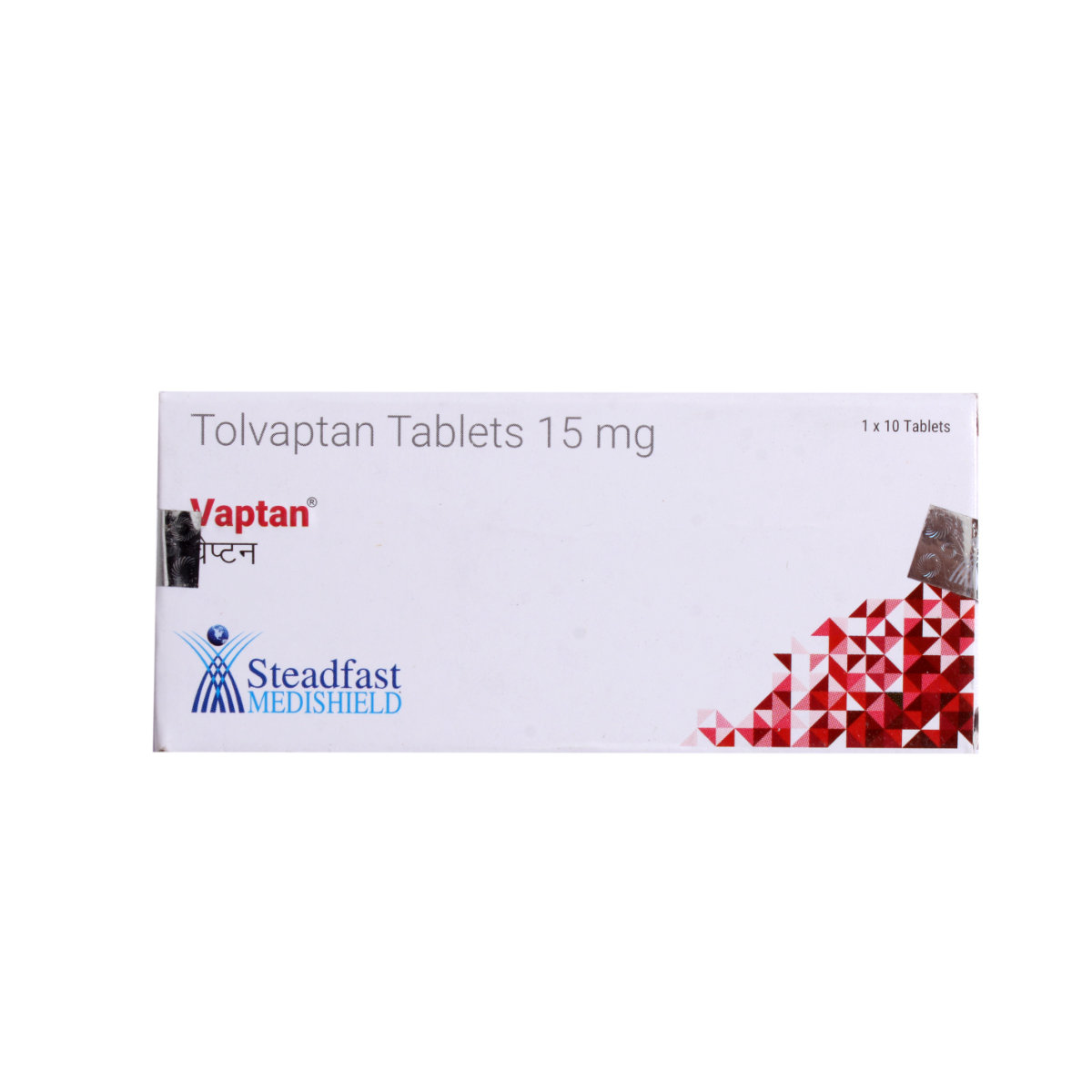




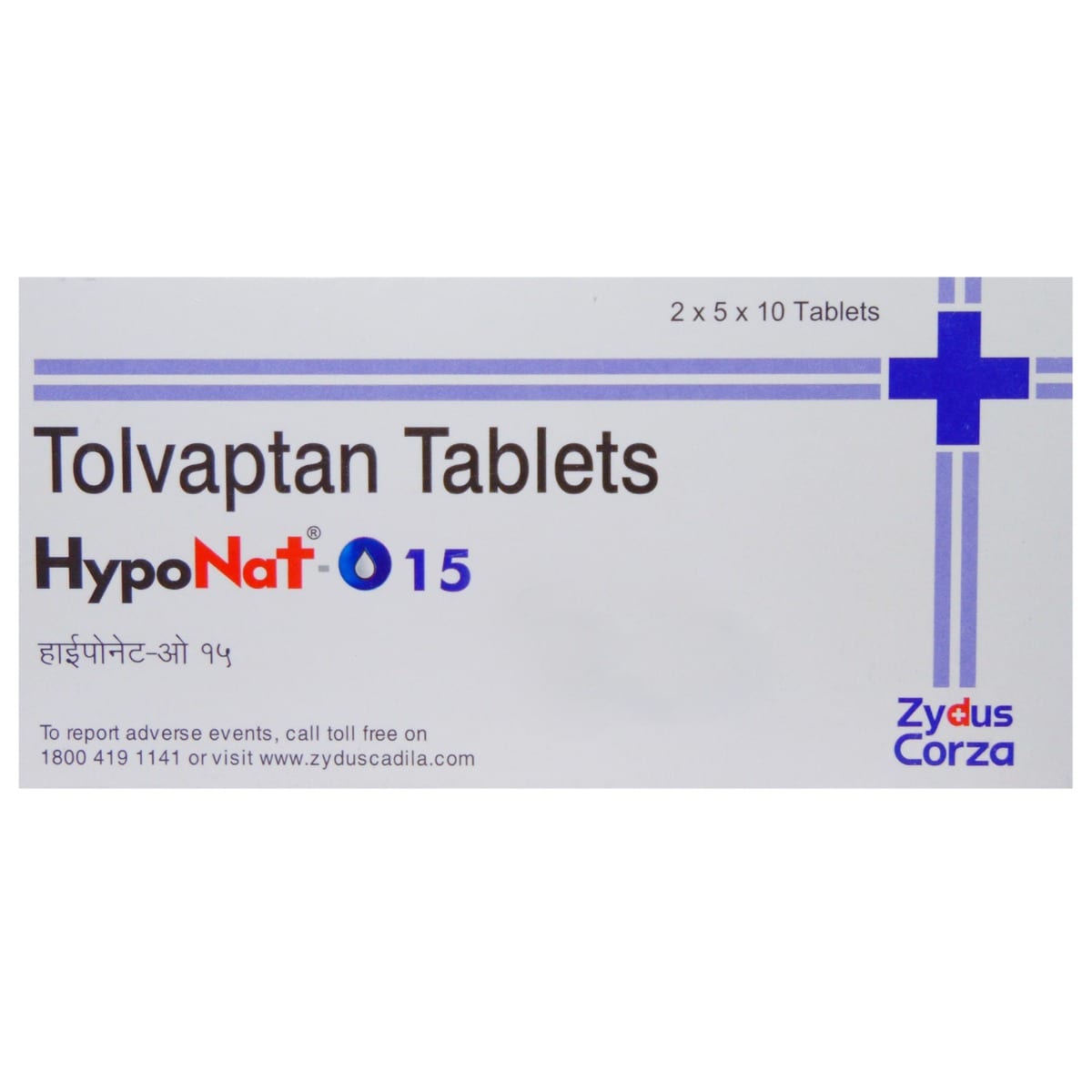
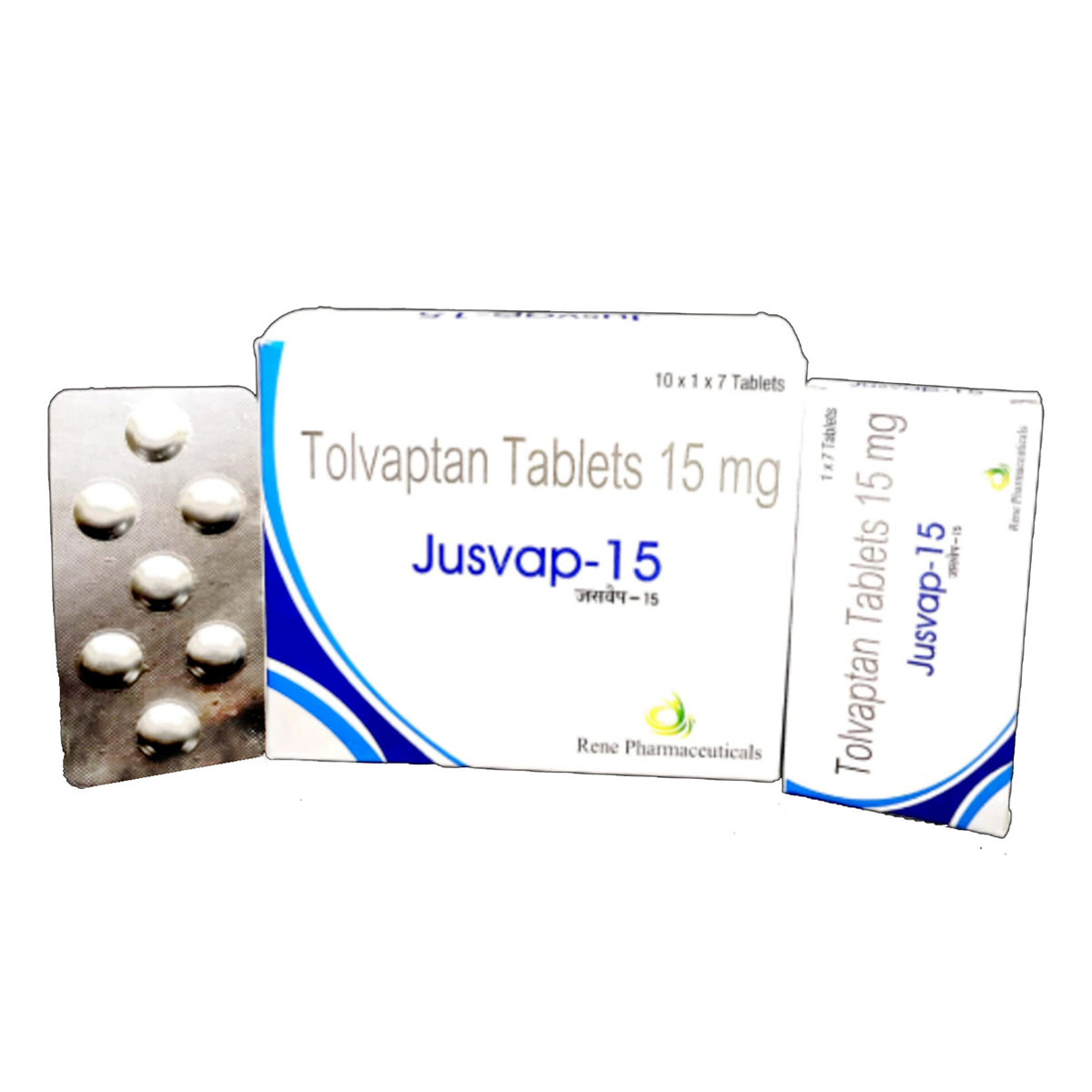

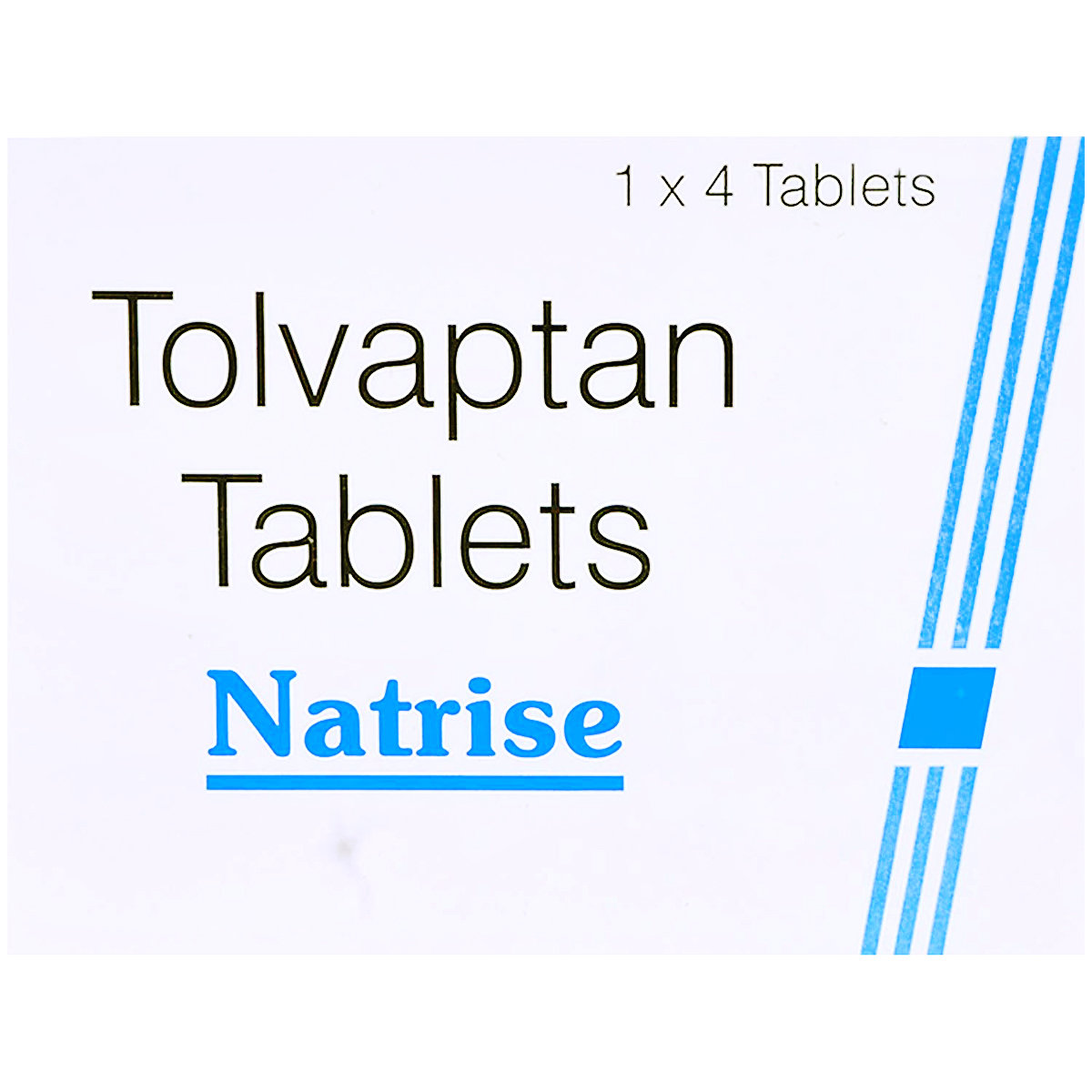
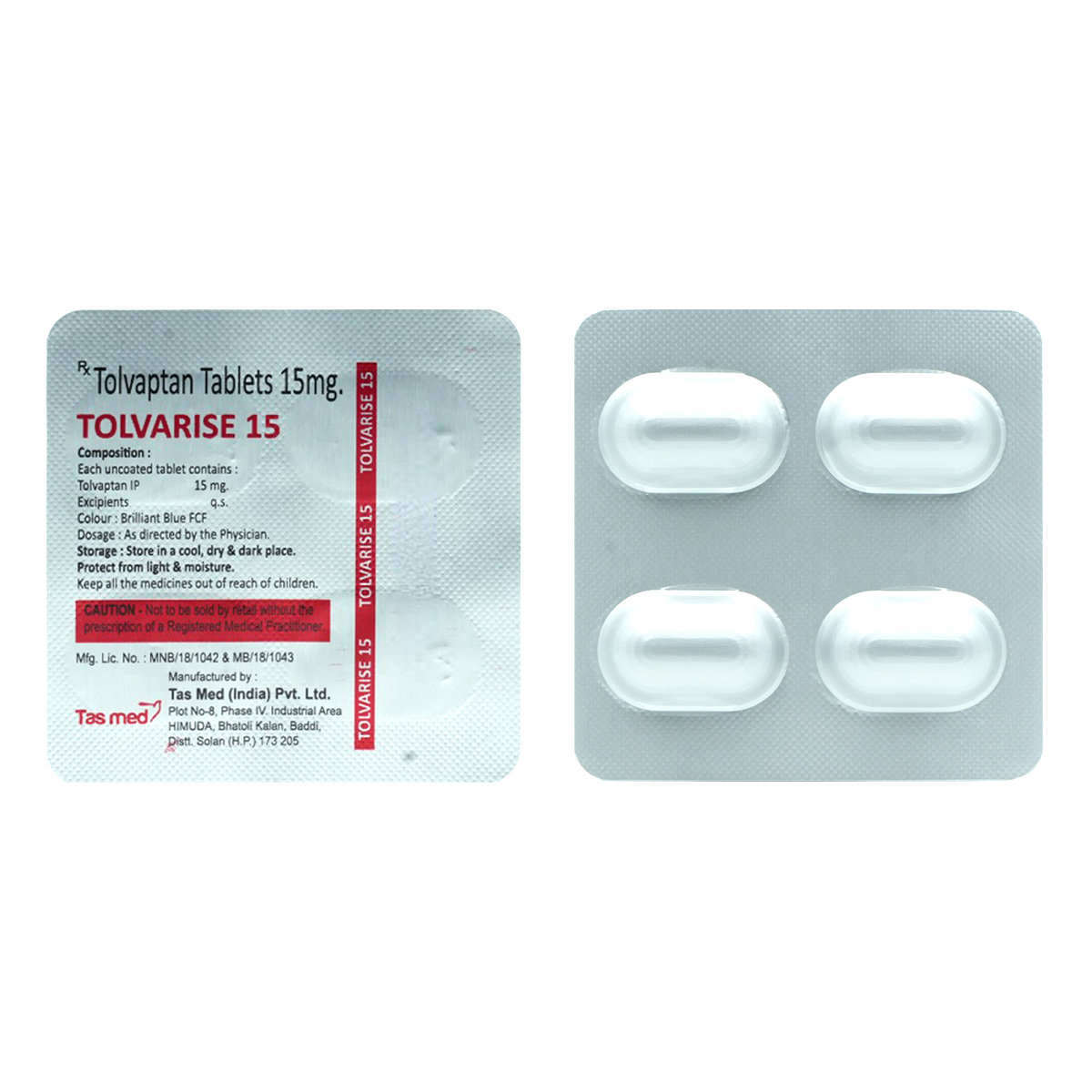
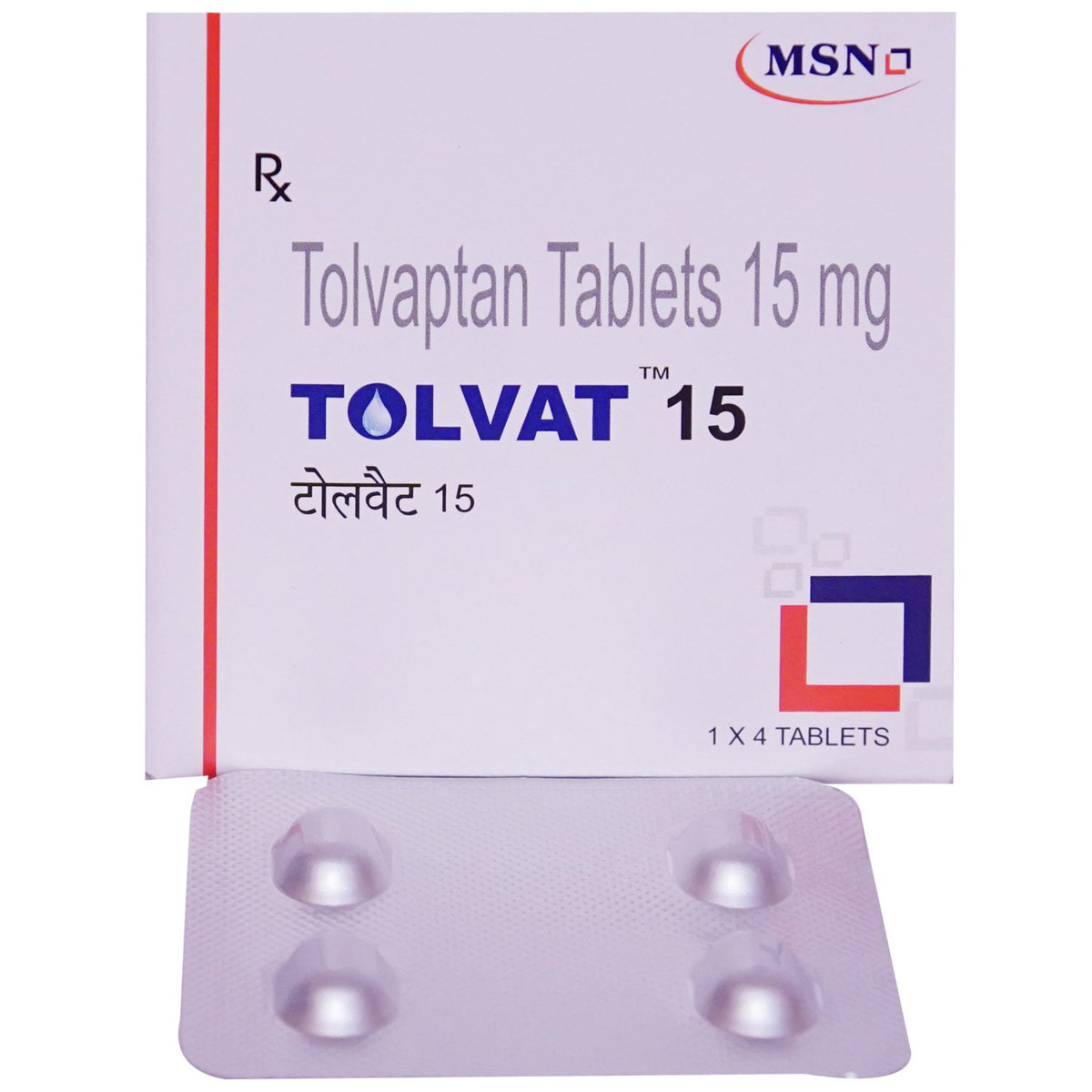
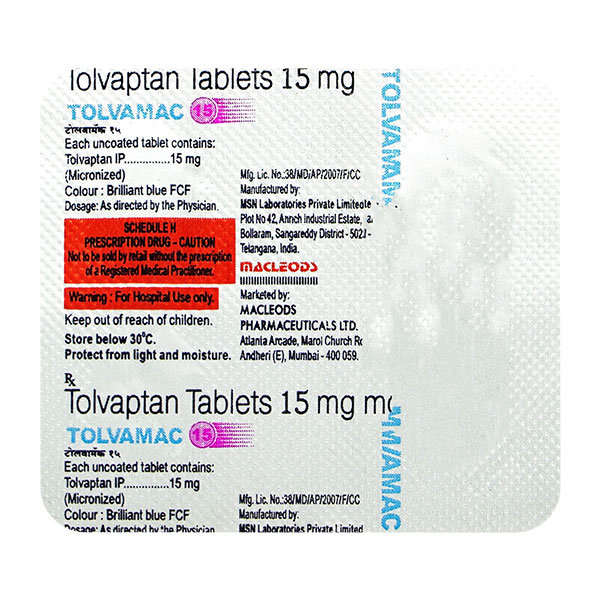
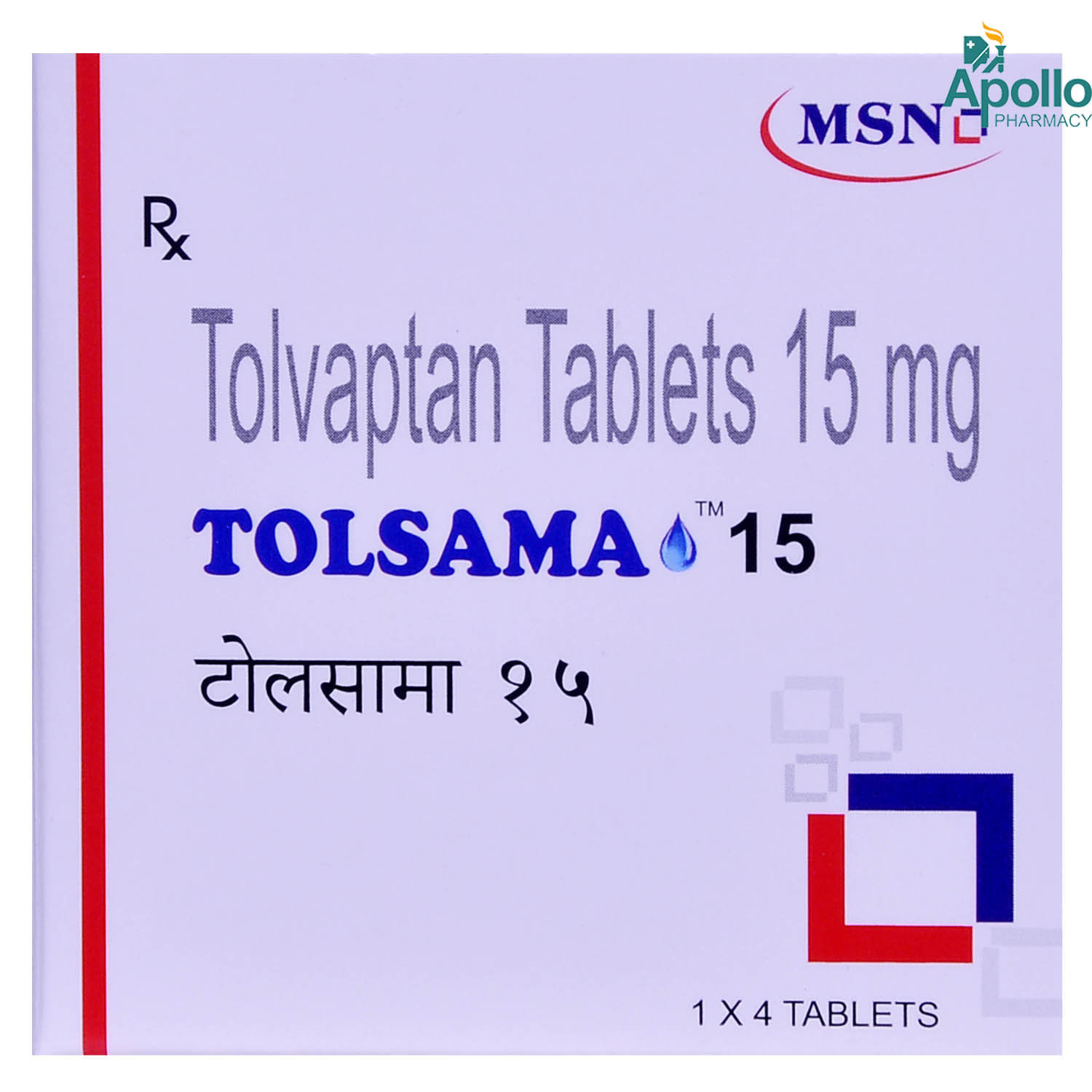
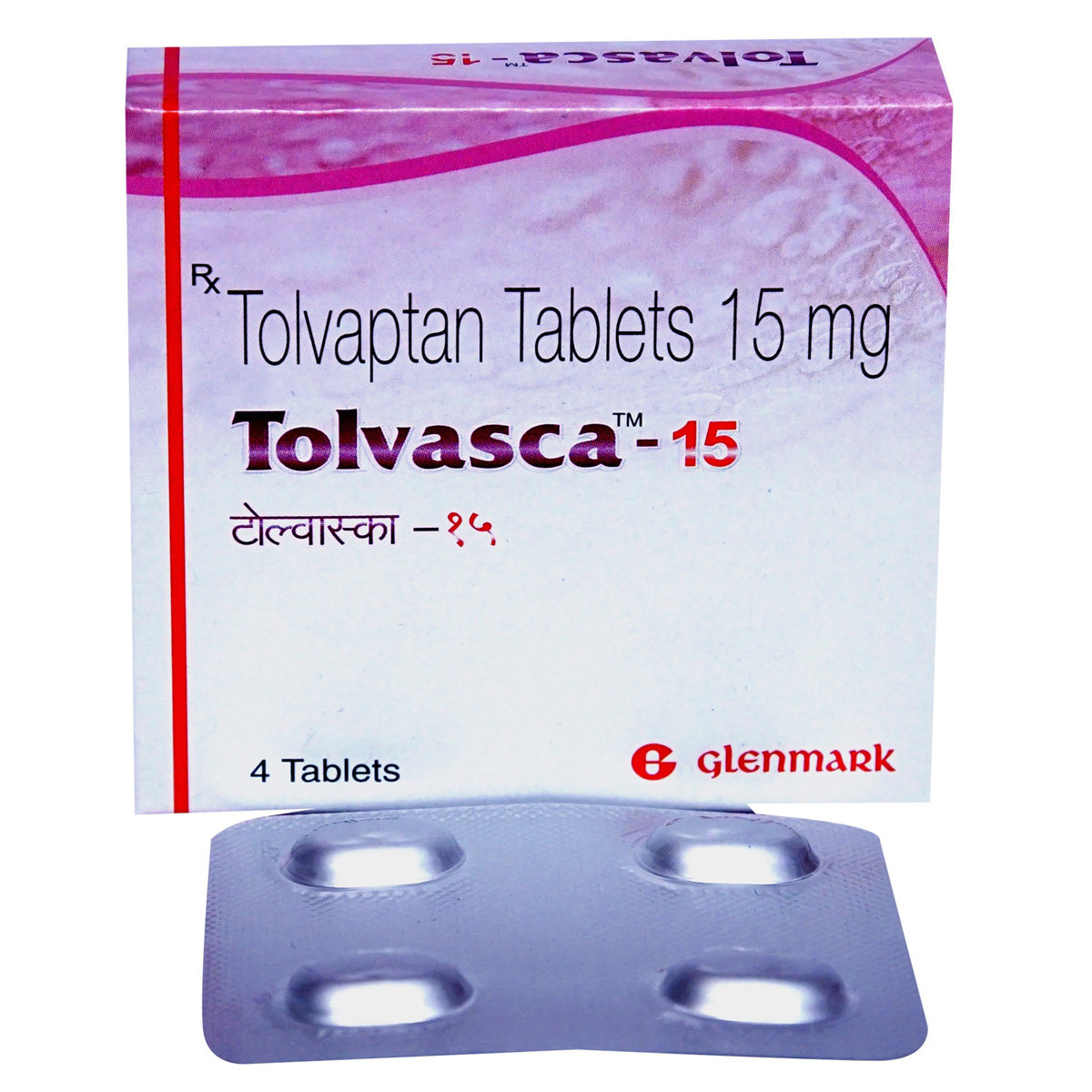
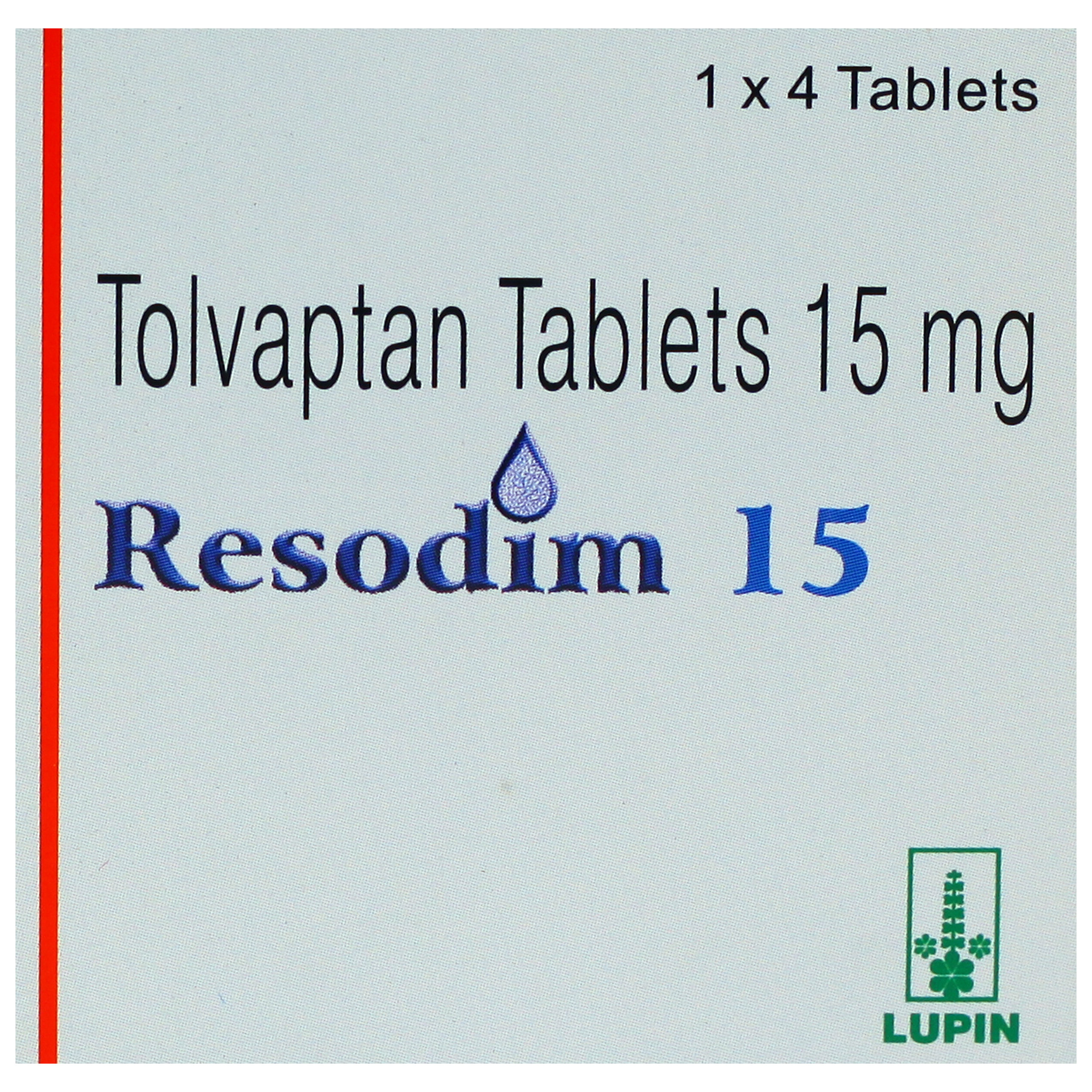

_0.jpg?tr=q-85)

